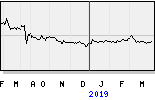
Leiden, The Netherlands, December 7, 2011. Biotech company Pharming Group NV (NYSE Euronext: PHARM) and specialty biopharmaceutical company Santarus, Inc. (NASDAQ: SNTS) today announced that retrospective analyses of integrated efficacy data and immuno-safety data were presented in two oral presentations at the 2011 Biennial Meeting of the World Allergy Congress (WAC) in Cancun, Mexico on December 6, 2011. The data analyzed are from placebo-controlled and open-label clinical studies conducted with the investigational drug RHUCIN® (recombinant human C1 inhibitor, or C1INH) in patients with hereditary angioedema (HAE).
The first oral presentation was titled Clinical Efficacy of Recombinant Human C1 Inhibitor in Patients with Acute Hereditary Angioedema Attacks (A. Reshef, et al). This integrated efficacy dataset included 155 HAE patients treated for 424 angioedema attacks with 100 U/kg, 50 U/kg and 2100 U of RHUCIN, including patients treated for repeated attacks. Median time to the primary endpoint of onset of symptom relief for attacks treated with 100 U/kg, 50 U/kg and 2100 U of RHUCIN were 66, 60 and 61 minutes, respectively, compared with 495 minutes in the placebo-treated group. Median times for time to minimal symptoms were 266, 240 and 241 minutes for the 100 U/kg, 50 U/kg and 2100 U RHUCIN treated attacks, respectively, compared with 1210 minutes for the placebo-treated attacks. Clinical response rates of 93%, 96% and 88% for the 100 U/kg, 50 U/kg and 2100 U doses, respectively, were observed for the RHUCIN treated groups compared with 41% for the placebo group. Abdominal attacks had the fastest onset of symptom relief (50, 36 and 60 minutes), followed by oro-facial-pharyngeal-laryngeal attacks (70, 65 and 120 minutes), and peripheral attacks (75, 84 and 121 minutes) for the100 U/kg, 50 U/kg and 2100 U doses, respectively. None of the RHUCIN treated attacks relapsed. No drug-related serious adverse events or hypersensitivity reactions were observed. The most frequently reported adverse event was headache.
The second oral presentation was titled Immuno-safety of Recombinant Human C1 Inhibitor in Patients with Hereditary Angioedema: An Integrated Analysis (C. Hack, et al). Data from this presentation were previously discussed in a press release on November 4.
RHUCIN Phase III Study
Santarus has licensed certain exclusive rights from Pharming Group NV to commercialize RHUCIN in North America for the treatment of acute attacks of HAE and other future indications. Pharming is conducting a Phase III clinical study with RHUCIN under a Special Protocol Assessment (SPA) that is intended to support the submission of a Biologics License Application (BLA) to the U.S. Food and Drug Administration (FDA). RHUCIN is being evaluated for the treatment of acute attacks of angioedema in patients with HAE in an international, multicenter, randomized, placebo-controlled Phase III study at a dosage strength of 50 U/kg with a primary endpoint of time to beginning of relief of symptoms. The study is expected to be completed by the third quarter of 2012.
About RHUCIN (RUCONEST® in European countries) and Hereditary Angioedema
RHUCIN (INN conestat alfa) is a recombinant version of the human protein C1 inhibitor (C1INH). RHUCIN is produced through Pharming's proprietary technology in milk of transgenic rabbits and in Europe is approved under the name RUCONEST for treatment of acute angioedema attacks in patients with HAE. RHUCIN has been granted orphan drug designation in the U.S. for the treatment of acute attacks of HAE, a genetic disorder in which the patient is deficient in or lacks a functional plasma protein C1 inhibitor, resulting in unpredictable and debilitating episodes of intense swelling of the extremities, face, trunk, genitals, abdomen and upper airway. The frequency and severity of HAE attacks vary and are most serious when they involve laryngeal edema, which can close the upper airway and cause death by asphyxiation. According to the U.S. Hereditary Angioedema Association, epidemiological estimates for HAE range from one in 10,000 to one in 50,000 individuals.
About Pharming Group NV
Pharming Group NV is developing innovative products for the treatment of unmet medical needs. RUCONEST® (RHUCIN® in non-European territories) is a recombinant human C1 inhibitor approved for the treatment of angioedema attacks in patients with HAE in all 27 EU countries plus Norway, Iceland and Liechtenstein, and is distributed in the EU by Swedish Orphan Biovitrum. The product is also under development for follow-on indications, i.e. antibody-mediated rejection (AMR) and delayed graft function (DGF) following kidney transplantation. The advanced technologies of the Company include innovative platforms for the production of protein therapeutics, technology and processes for the purification and formulation of these products. Additional information is available on the Pharming website, www.pharming.com
